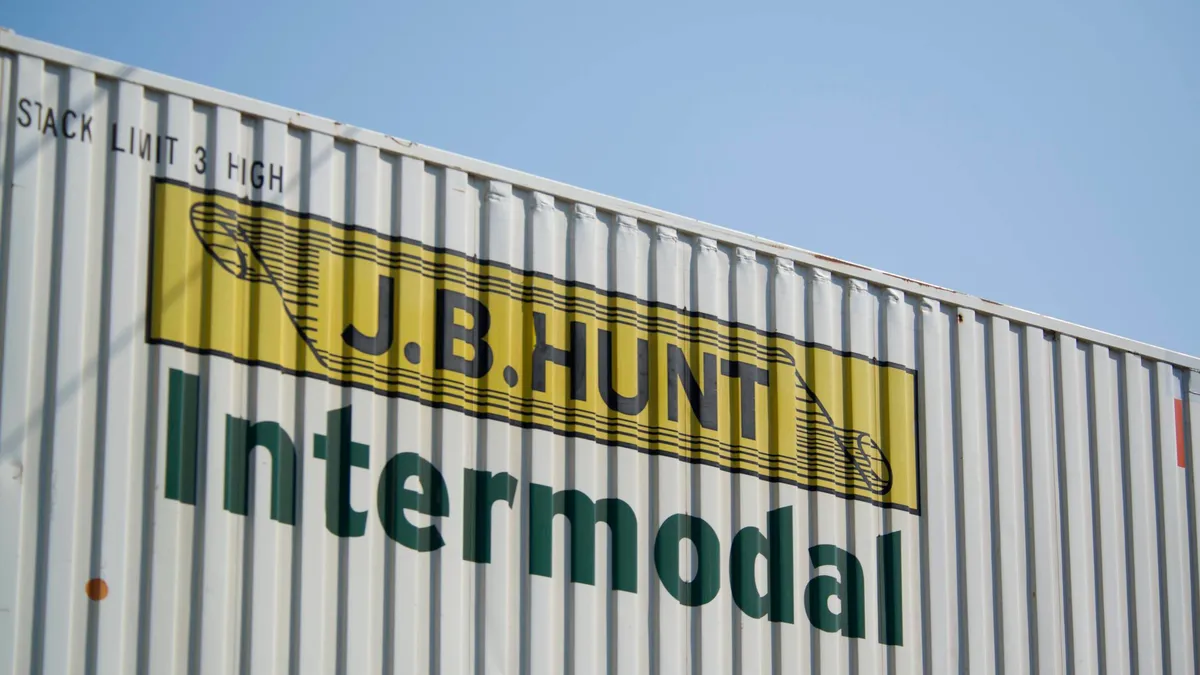Dive Brief:
- J.B. Hunt launched an initiative allowing intermodal customers to purchase carbon credits to offset shipment emissions, the carrier announced on April 4.
- The program, known as Clean Transport, will tell shippers the amount of offset credits needed for a carbon neutral shipment. Businesses can then choose to buy carbon credits through J.B. Hunt, which support carbon offset projects such as reforestation, regenerative agriculture and clean power generation.
- Shippers can request to offset emissions from certain shipments, or identify entire lanes they'd like to be carbon neutral.
Dive Insight:
J.B. Hunt's carbon offset program is a way for businesses to make a short-term environmental impact until electric vehicles and zero-emission technology become more widespread in the transportation industry, the company said in an email.
"While many customers would like to reduce emissions even further, the technology that would help accomplish that is not quite ready and/or cost effective for widespread adoption," Craig Harper, chief sustainability officer and executive vice president at J.B. Hunt, said. "Carbon offset credits offer an interim solution to extend their current sustainability efforts while technologies develop."
Shippers can request to offset emissions from certain shipments, or identify entire lanes they'd like to be carbon neutral. A third party verifies the amount of carbon emitted, the amount of credits needed to offset those emissions and that the reduction was successful. J.B. Hunt will then purchase the carbon credits and pass the charges along to the shipper.
Shippers also have the option to choose which carbon registry they'd like to work with and what type of carbon offset project they want to support — options include reforestation, forest management, regenerative agriculture or clean power generation.
J.B. Hunt is limiting its carbon offset program to intermodal customers for now, but anticipates rolling out the initiative to other business segments. The program comes as the carrier plans to grow its intermodal fleet by more than 40% over the next three to five years in partnership with BNSF.
Other carriers have focused on expanding intermodal operations as a way to reduce their climate impact and get more trucks off the road. Schneider, for example, plans to reduce emissions by doubling its intermodal fleet by 2030. The company also added 50 electric vehicles to its intermodal operations in Southern California late last year.
Transportation makes up approximately 15% of greenhouse gas emissions worldwide, with sector emissions since 2010 rising faster than any other industry, a report from the Intergovernmental Panel on Climate Change said last week. Carriers are under pressure to offer more sustainable options to shippers looking to meet sustainability goals.
"Many of our customers are working towards short- and long-term sustainability goals, and CLEAN Transport will serve as a great extension of the efforts they’re already taking to reduce the carbon footprint of their supply chain," Harper said in a statement.













